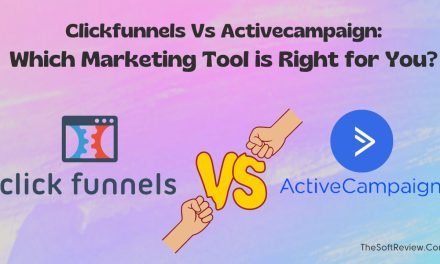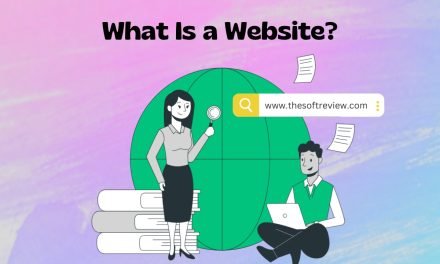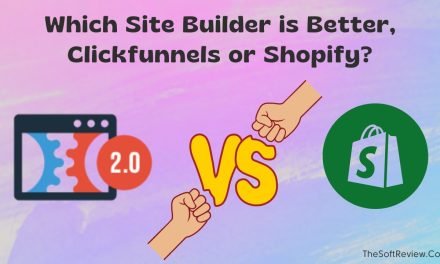
What is a Website Builder? Uncover How Site Builders Work
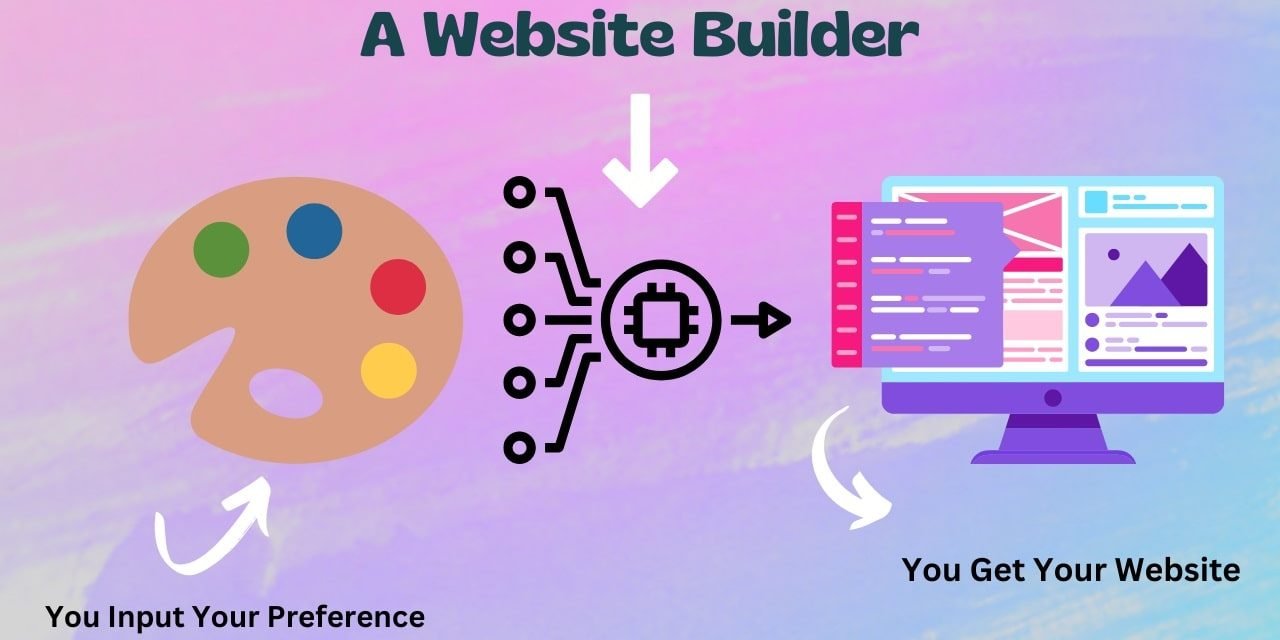
Writing codes and creating a website is a laterally time-consuming process, and when many of us are afraid of programming, creating a personal website becomes a daydream. But not anymore!
Website builders offer an affordable solution to make websites for all aspiring entrepreneurs. Even with little or no coding knowledge, you can design beautiful websites with a builder!
But how efficient are website builders; is that enough to assist you in creating a full-fledged website? In this discussion, we will uncover what a website builder is, how it works, and why it might be the right choice for your new website-creating journey.
An Overview of a Website Builder and How it Helps to Create a Website
What is a website builder?
A website builder is a specialized computer program designed to help individuals and businesses create their websites without prior coding knowledge.
This tool automatically generates codes on their backend based on user preference. It makes it easy for anyone to get their project online without sacrificing the quality and features of a professional website.
The significant difference between a website builder and the manual code-writing process of website creation is that a builder does not ask you to write the code.
Instead, a website builder lets you design the appearance of the website and convert your activities into computer codes using machine learning techniques.
For example, with the manual coding process of website creation, to use the red color as your page background, you have to write the following HTML codes-
<!DOCTYPE html>
<html>
<head>
<title>Page Title</title>
</head>
<body>
<style>
body {background-color: red;}
</style>
</body>
</html>
But, with a website builder, you do not need to write code to change the background color. You get a drag-and-drop editor and choose any color you want.
Let’s learn how a website builder works by taking a look at the key features of a site builder:
1. Pre-Built Templates:
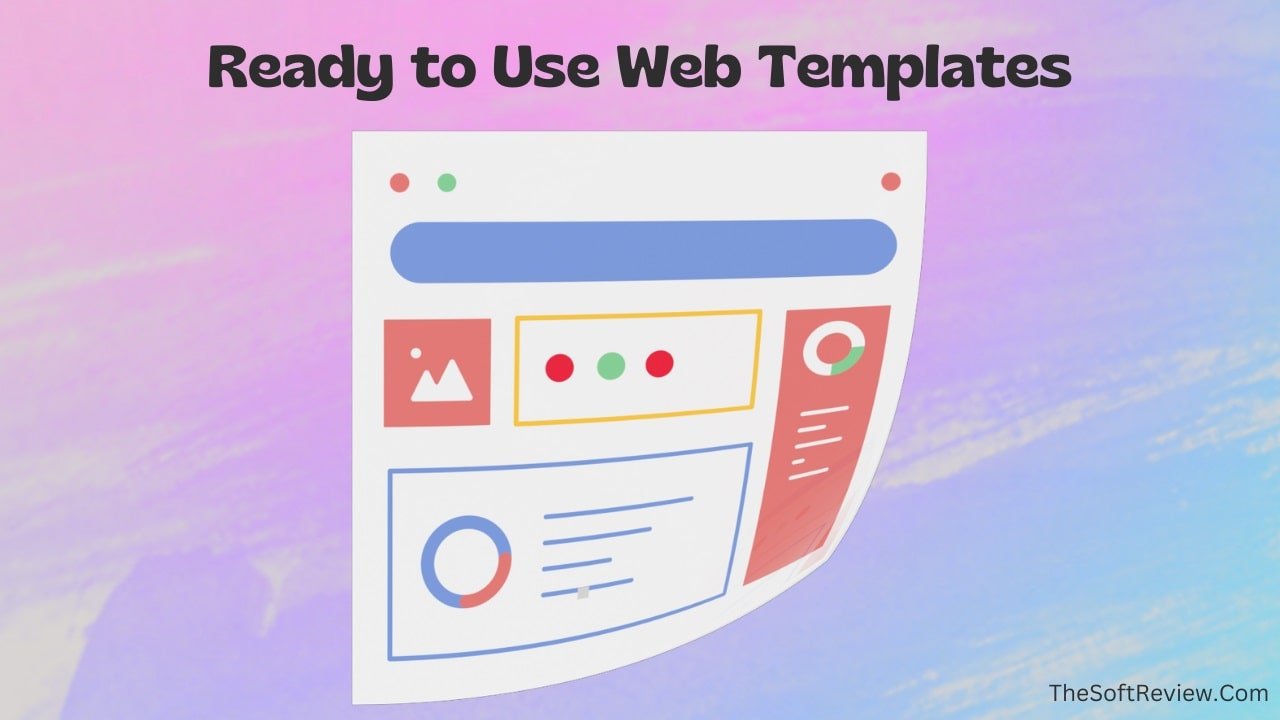
Learning and writing programs using languages like HTML, CSS, Javascript, and others can take hours and months. For many people, the task seems challenging and takes a year. Thankfully, website builder was invented in the 2000s to simplify the web development process.
A site builder offers a vast library of pre-designed web page layouts (templates) that you can use and build a good-looking website within a few hours. And, for different purposes, you get a diverse library of fully functional and customizable web templates for blogs, portfolios, e-commerce, and others.
All you have to do is to pick a template that fits your needs and personalize it as you want! That means you do not need to write code for the front-end part.
2. Drag-and-Drop Creator and Customization:
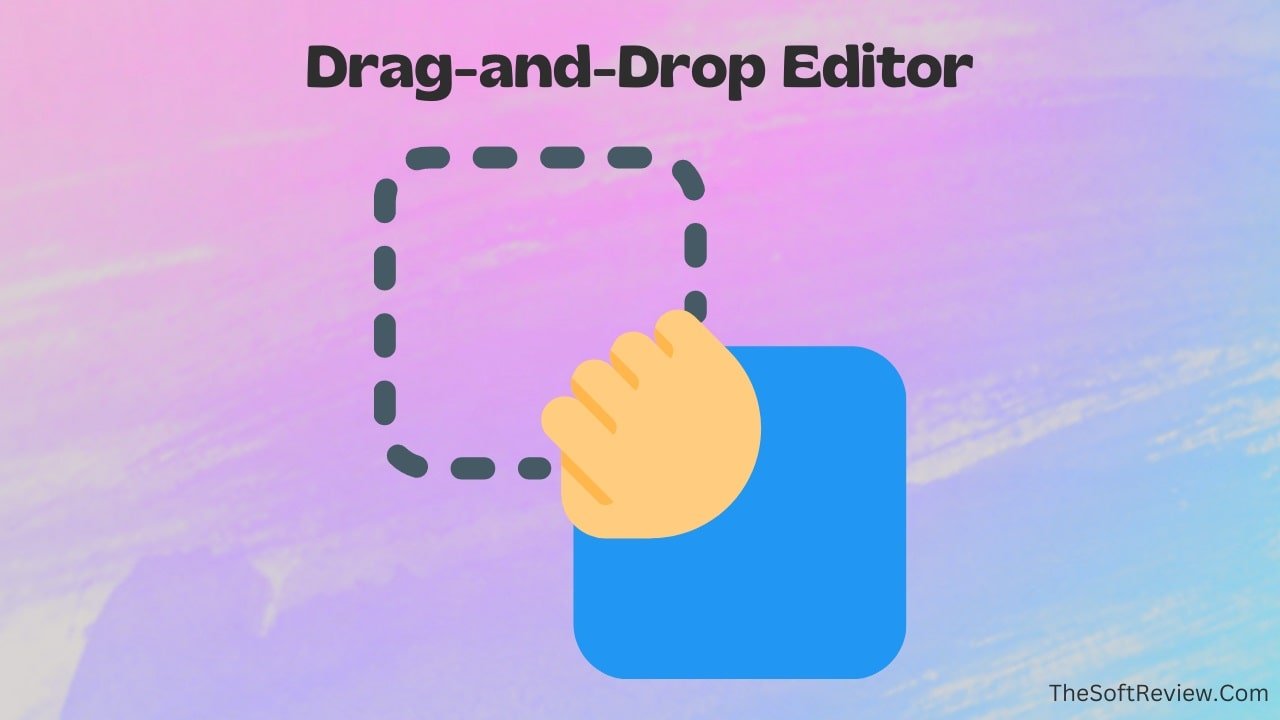
Modern site builders contain a drag-and-drop page creator and editor, which is arguably the best feature of a website builder. A drag-and-drop builder is a visual way to create and edit the front end of a website.
It allows you to create a web page from scratch or edit a pre-build template almost as you need. Customization options include page layout, font styles, color schemes, and adding images, audio, video, and other file types.
Besides, a good website builder allows you to add custom code to make the front-end part more personalized. And the website builder handles the backend functionalities.
3. Content and E-commerce Management:
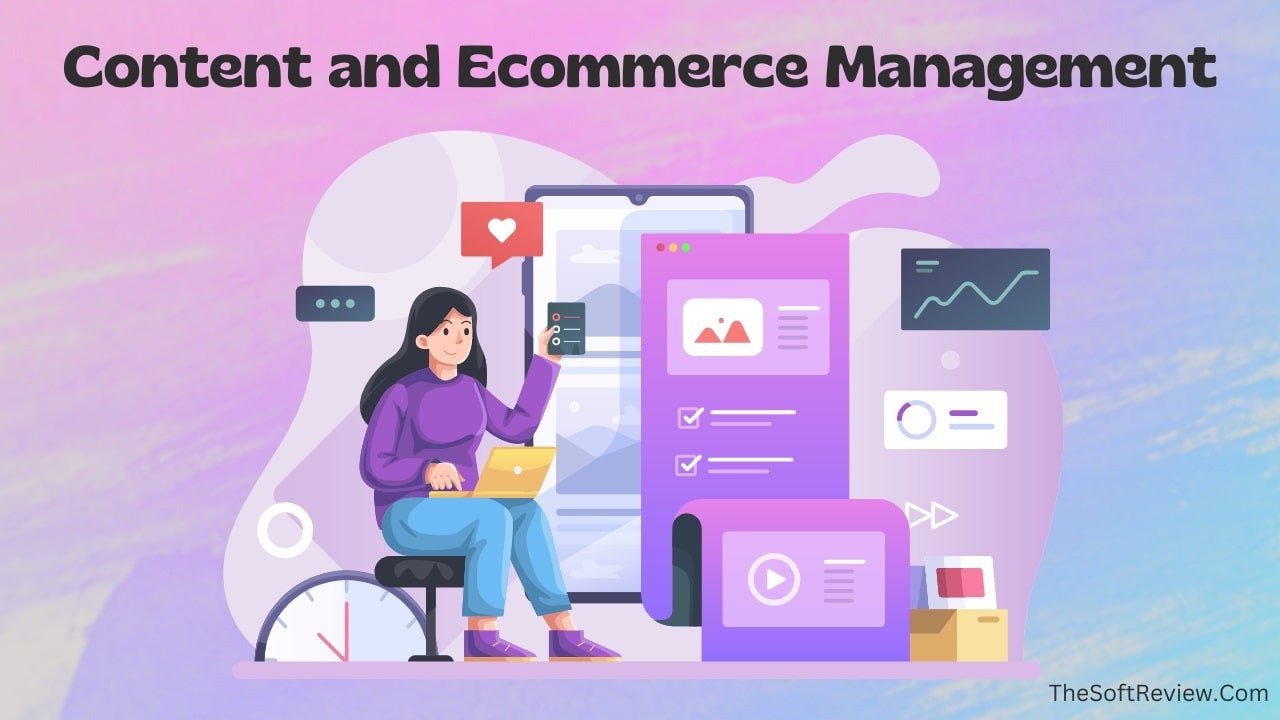
Advanced no-code site creators offer built-in e-commerce functionality that can save time and effort. Essential online store features include adding a shopping cart, processing payments, and managing inventory.
Besides the tools to showcase your products online and to sell, website makers let you write blog posts, manage the content, and share them to help your audience without writing codes. And you can get more advanced content and online shop management functionalities with integrations.
4. Integrations:

Integrations refer to the ability of a site builder to connect to other tools and platforms to enhance the functionality of the site builder. Many website builders offer thousands of integrations with popular tools like email marketing platforms, social media networks, customer relationship management (CRM) software, and more.
These integrations can assist you in improving website functionality and automating repetitive tasks by adding features like a live chatbot, contact forms, etc., without coding.
5. Analytics:

Website builders often offer built-in analytics tools, such as visitor tracking, page views, and bounce rate, to help a site owner make data-driven decisions to improve customer satisfaction rates.
Furthermore, integrating with advanced analytic tools allows one to track user behavior, campaign performance, and other metrics. And if you are a programmer, you can imagine how many lines of code it needs to write to build an analytics tool and add it to a website!
6. User Friendliness and SEO Optimization:
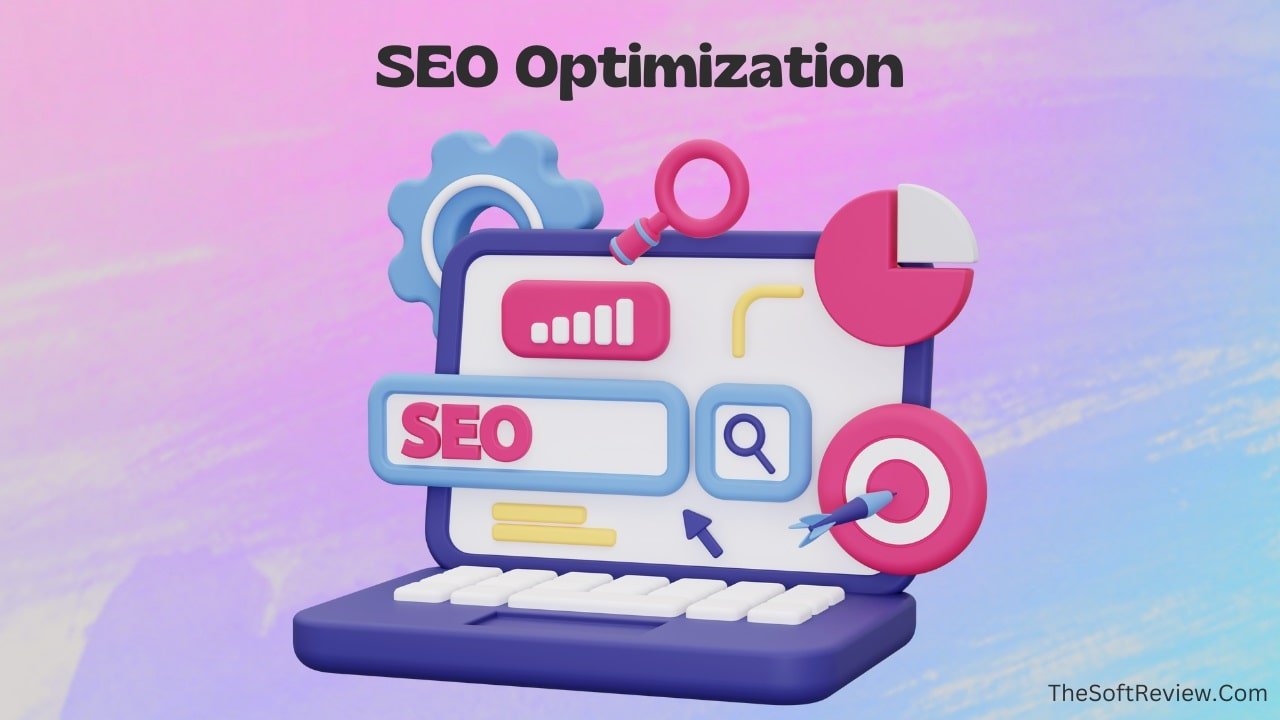
Nowadays, most internet users access websites from mobile devices, so websites need to be mobile-responsive. Website builders enable users to create websites optimized for mobile devices, automatically adjusting the layout to fit the screen size. These optimization features ensure website visitors have a good user experience, regardless of their device.
With that, you get built-in SEO tools to optimize your websites for search engines, such as indexing pages, adding meta tags, descriptions, alt text, and more with ease. These SEO tools help enhance a website’s search engine rankings, which can emerge in more traffic and leads.
Well, these are the key features offered by modern website builders, and there is much more to explore as we move forward with time. Now let’s talk about site builders and their categories:
Website Builders and Their Different Types
There are two types of website builders you can use. One is an offline website builder, and the other one works online:
A. Online Website Builder:
Online website builders are web-based tools that let you create websites without downloading or installing software on your local computer. They offer a drag-and-drop interface and a variety of pre-designed website templates, as advanced features like e-commerce, content management, online booking with plugins and add-ons, and custom codes.
Some famous examples of online website builders include Wix, WordPress, Shopify, Clickfunnels, and more. One of the main advantages of online site builders is that they are straightforward to use and require little to no technical skills.
They often provide domain-hosting and other web services, making it easy for users to get their sites up in less time.
B. Offline Website Builder:
An online website builder asks you to download and install the software on your local computer. These tools often offer more customization options than many online website builders but require more technical skills.
Famous examples of offline website builders include Mobirise, Template Toaster, Pinegrow, and others.
Offline website builders offer more control over the design and functionality of your website. It also allows you to work on your dream website even if you do not have an internet connection!
On the other hand, we can categorize these two types of websites in many categories based on their primary use cases, such as ecommerce website builder, blog site builder, and more.
However, before you choose a website builder and start creating your website using, let’s take a look at the major pros and cons of website builders so that it helps you in the long run:
Should I Use A Website Builder Or Not?
Here are some of the significant pros and cons of using a website creator, which will help you sum up the worth:
1. Pros of Using a Good Website Builder
A. Easy To Use:
Website builders are designed to be user-friendly and make it easy for anyone to build a website. The drag-and-drop feature, pre-designed website templates, and intuitive integrations allow you to create a good-looking site without coding experience.
B. Accessibility:
Online website builders are accessible to anyone with a computer and an internet connection. That means you can make a website from anywhere worldwide, anytime, along with your team members.
C. Cost-Effective:
Website builders are much more cost effective than hiring a web designer or developer, so they’re perfect for those on a budget.
D. Professional-Looking Site:
Website builders offer templates with professional design to have a great-looking website without worrying about coding.
E. Time-Saving:
Website builders are incredibly time-saving since there’s no need to code your site from scratch – all the hard work has already been done for you.
F. Multilingual Support:
Most website builders are available in multiple languages, ensuring people with different language backgrounds can use them.
2. Cons of Using a Website Builder
A. Limited Design Customizability:
Website builders are designed for everyone, so there is a limit on how much customization you can do. Suppose you want unified control to personalize your website’s look and feel as you imagine. In that case, you need to hire a web designer.
B. Not Suitable For Complex Sites:
Website builders aren’t suitable for websites that require complex functionality, such as advanced web applications, social media, or gaming sites.
C. Less Control Over the Data:
When you use a site builder, the builder company stores your data on its servers, which means you depend on them to maintain and protect your data.
3. Who Should Use a Website Builder?
- Small business owners or individuals on a budget who want to create a site quickly and cost-effective.
- People who need coding experience or web development knowledge.
- Individuals or small businesses who require an essential webpage with a few pages and simple functionality.
- People who want to spend their time on something other than hosting, maintenance, or server management.
4. Who Should Not Use a Website Builder?
- People who want complete control over their data wish to rely on something other than a third-party site builder.
- Businesses or individuals who need a unique website design that is not available in website builder templates.
- Individuals who require specific website features or functionality unavailable in website builder tools.
You now know whether a website creator would best fit your business. Now let’s discuss some tips for choosing the right website builder for your company.
How to Find the Best Website Builder for Your Business
You will find hundreds of site builders in the market, and the number is overgrowing. But the following ten tips will always help you find the best website maker for your business.
1. Analyze Your Business Needs
The first step would be to identify your business needs. Suppose you’re planning to sell products or services online. In that case, you need a website builder that offers robust eCommerce capabilities such as a shopping cart, payment gateway integration, and inventory management.
In addition, if you want to start a content-based website like an affiliate website, or a news portal, look for a site creator with enough features for content management. These can include features such as creating and editing content, role-based administration, multilingual content capabilities, and more.
2. Ease of Use
Second, you need to consider the ease of use of the site builder. Always look for a website builder with an easy-to-use interface and ensure the system remains stable while editing.
If a site builder consumes so much ram and storage, it will not provide you an optimum experience! Also, choose a builder that requires no coding or technical knowledge to build a professional website. You can use free trials of different builders before you select one that offers a user-friendly interface and easy-to-understand instructions.
3. Customization Options
The next aspect is to examine the customization capabilities available in the website builder. Every business is unique and requires unique design and customization. Thus, you should look for a website builder that offers a wide range of customization options.
Besides changing colors, fonts, layout, and adding media files, consider a builder that provides adequate pre-build templates and lets you use custom code.
4. Integrations/Plugins/Add-Ons
Integrations are a crucial aspect to consider when choosing a website builder. Look for a builder offering a vast library of integrations, such as social media platforms, email marketing services, CRM software, and more. Along with that, an ideal website builder would let you add custom code to add custom functionalities.
5. Security
Security is a critical aspect to consider when choosing a website builder. Pick a website builder that offers regular data backups and protection against malware and hackers. Ensure essential security standards like SSL certificates and other encryption types.
6. Mobile Optimization
Mobile optimization becomes essential as mobile devices account for a significant portion of internet traffic. It ensures your own website looks great and functions correctly on mobile devices. Look for site builders that offer mobile optimization features and responsive design templates.
7. SEO Features
Search engine optimization (SEO) is essential to build a money-making website. Thus, it would help if you choose a builder that efficiently lets you implement SEO features such as meta tags, alt tags, schema markups, and more. Also, ensure a builder that supports popular SEO integrations such as Google Analytics, Search Console, and others.
8. Customer Review and Brand Reputation
The reputation of the website builder is an essential aspect to consider. Look for website builders with a good reputation and positive user reviews. You can check online review platforms such as Trustpilot, G2, and The Soft Review to get an idea of what other users think about the website builder.
9. Customer Support
Customer support is another essential aspect to consider when choosing a website builder. Look for website builders that offer 24/7 customer support, with multiple support channels such as phone, email, and live chat. Also, consider a builder that has a comprehensive knowledge base or community forum, which can help you find answers to your questions.
10. Scalability and Pricing
Last, measure a website builder’s scalability and pricing. Find an affordable website builder that can handle your growing traffic and offers flexible pricing to upgrade or downgrade a plan with no hidden charges. Also, examine if the builder offers a free trial or a money-back guarantee, which can help you test the platform before you buy it.
And with these tips in mind, you should be able to find the perfect website builder for your business in no time!
Final Words
A website builder is an easy and cost-effective way to create a great-looking website without learning to code. Though website builders have some limitations, a good builder can help us create professional-looking websites.
With the right features and skills to use those features, you can create a website at lightning speed. So, consider the ten tips in this discussion when choosing the best site builder for your business. And you can save time by looking at our list of the top ten website builders.
Frequently Asked Questions
1. Will Website Builders Replace Web Developers?
No. A site builder will never replace all the web developers in the world because even if you develop a website using a site builder, it requires a sense of color and needs the ability to use a website builder’s functionalities.
So, many of you will still need to hire a web developer to create a professional website. Thus, web developers will have many jobs to create professional-grade websites by writing codes or using a website builder.
2. Is Website Builder Free?
Yes. Some website creators are open sources like WordPress.org, which you can use to build a website for free. Yet, to launch a website online, you must spend some money on buying the domain and web hosting services.
At the same time, if you choose a premium website template, then it will raise the cost as well. So even you can use some site creators for free, but to get the end result with professional quality, you will have to pay for it!
3. Can You Make A Website Builder?
Yes! You can create a website builder from scratch. But you will need vast knowledge of computer science. You must know how to communicate with the computer in binary codes and how the internet works.
It would help if you also learned to program languages like C++ and others to create a program that eases web development. It is a time-consuming process that can take years, but still possible if you have the courage and are blessed with resources.





